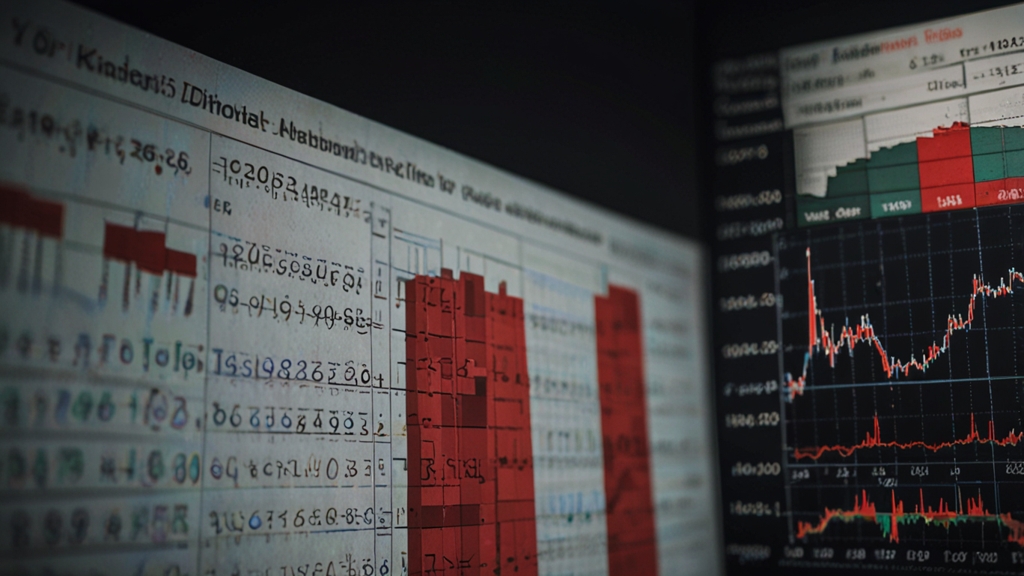Mysteries of Revelation: What the Experts Won't Tell You
The Book of Revelation, the final chapter of the Bible, has long been a source of fascination and mystery. Written by the Apostle John, the text is rich with vivid imagery, cryptic symbolism, and prophetic visions that have intrigued scholars, theologians, and laypeople alike. But despite centuries of study, many aspects of this enigmatic book remain shrouded in mystery. Here, we delve into some of the lesser-known insights and theories that experts often overlook or choose to remain silent on.
Unraveling the Symbolism
Revelation is replete with symbols that are often interpreted in varied ways. From the Four Horsemen of the Apocalypse to the Seven Seals, each symbol carries profound meaning. Traditional interpretations often lean heavily on theological frameworks, but some scholars argue for a more nuanced approach.
"The symbols in Revelation should not be read in isolation or strictly through a religious lens; historical and cultural contexts must be considered to fully understand their implications," says Dr. Marianne Watson, a professor of Religious Studies.
The Role of Numerology
Numerology plays a pivotal role in the Book of Revelation. The numbers seven, twelve, and forty are recurrent themes, symbolizing completeness, divine authority, and periods of testing, respectively. Experts have explored these numerological patterns extensively, yet some inquiries are often left out of mainstream discussions. For instance, the number 666, commonly referred to as the "Number of the Beast," is frequently interpreted as a mark of the antichrist. However, some scholars argue that this number could also symbolize imperfection and falling short of divine completeness, as six is one less than seven.
"While 666 is often sensationalized, its deeper meaning might be tied to the Roman Emperor Nero, whose name, when translated into Hebrew, also adds up to 666," explains Dr. Samuel Green, a historian specializing in early Christian texts.
The Historical Context
One aspect often glossed over is the historical context during which Revelation was written. The text emerged during a time of great persecution for Christians, a detail that adds layers of meaning to its prophetic visions. Understanding the political and social pressures of that era can provide valuable insights into its more apocalyptic elements.
Knowing that John's audience was experiencing extreme hardship and looking for hope can shift how we interpret many of the book's warnings and promises. This angle tends to be less explored in mainstream scholarly work, yet it offers an indispensable lens for interpretation.
Controversial Interpretations
Interpretations of Revelation vary widely, and some of the more controversial theories seldom see the light of academic debate. For instance, the idea that Revelation's prophecies were not solely intended for a distant future but also for the immediate future of its original audience is often sidelined. This "preterist" view suggests that much of what Revelation describes was fulfilled within the first century AD.
"The preterist perspective offers a grounded interpretation that aligns more closely with historical events of the first century. Yet, it's a view that many traditional theologians are reluctant to explore due to its implications," notes Dr. Annette Miles, a biblical historian.
Modern-Day Relevance
Lastly, the application of Revelation's lessons to modern-day events is a topic of ongoing debate. Many believers see parallels between the book's prophecies and current global events, interpreting them as signs of the impending end times. While some find this perspective comforting, others argue that it diverts attention from the book's deeper spiritual messages.
"Revelation's ultimate aim is to provide hope and encouragement, regardless of the era. Focusing too much on its potential apocalyptic predictions can overshadow its immediate call for faith and perseverance," concludes Dr. Karen Lee, a theologian.
Conclusion
The Book of Revelation remains one of the most perplexing and debated texts in religious literature. While traditional interpretations abound, a closer look reveals a myriad of nuances and perspectives that are often ignored. By considering historical context, numerological significance, and controversial interpretations, we can gain a more comprehensive understanding of this complex and fascinating text. Whether viewed as a prophetic roadmap or a symbolic narrative, Revelation continues to captivate and challenge those who dare to explore its depths.









